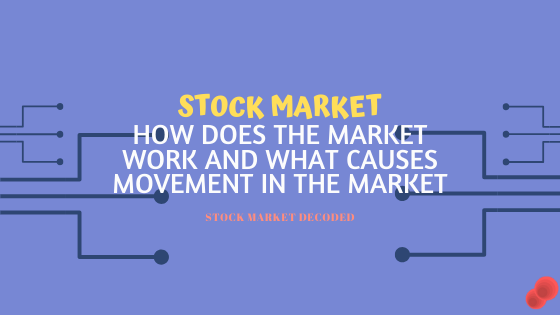
Welcome to Snowlush – A Community of enthusiastic bloggers who are popularly known as “Flakers”.
These are the people who are currently living a Boss-Free life or are currently moving in that direction.
Stock Market:
A stock market, equity market or share market is the aggregation of buyers and sellers (a loose network of economic transactions, not a physical facility or discrete entity) of stocks (also called shares), which represent ownership claims on businesses; these may include securities listed on a public stock exchange, as well as stock that is only traded privately, such as shares of private companies which are sold to investors through equity crowdfunding platforms. Investment in the stock market is most often done via stock brokerages and electronic trading platforms. Investment is usually made with an investment strategy in mind.

Stock Exchange:
A stock exchange is an exchange where stock brokers and traders can buy and sell shares of stock, bonds, and other securities. Many large companies have their stocks listed on a stock exchange. This makes the stock more liquid and thus more attractive to many investors. The exchange may also act as a guarantor of settlement. Other stocks may be traded “over the counter” (OTC), that is, through a dealer. Some large companies will have their stock listed on more than one exchange in different countries, so as to attract international investors.
Stock exchanges may also cover other types of securities, such as fixed interest securities (bonds) or (less frequently) derivatives which are more likely to be traded OTC.

What is a Trade?
Trade in stock markets means the transfer (in exchange for money) of a stock or security from a seller to a buyer. This requires these two parties to agree on a price. Equities (stocks or shares) confer an ownership interest in a particular company.
Participants in the stock market range from small individual stock investors to larger investors, who can be based anywhere in the world, and may include banks, insurance companies, pension funds and hedge funds. Their buy or sell orders may be executed on their behalf by a stock exchange trader.

What causes stock prices to change?
Stock prices change everyday by market forces. By this we mean that share prices change because of supply and demand. If more people want to buy a stock (demand) than sell it (supply), then the price moves up. Conversely, if more people wanted to sell a stock than buy it, there would be greater supply than demand, and the price would fall.
Understanding supply and demand is easy. What is difficult to comprehend is what makes people like a particular stock and dislike another stock. This comes down to figuring out what news is positive for a company and what news is negative. There are many answers to this problem and just about any investor you ask has their own ideas and strategies.
When does the price change?
So, why do stock prices change? The best answer is that nobody really knows for sure. Some believe that it isn’t possible to predict how stocks will change in price while others think that by drawing charts and looking at past price movements, you can determine when to buy and sell. The only thing we do know as a certainty is that stocks are volatile and can change in price extremely rapidly.

Fundamental Factors that change the price:
In an efficient market, stock prices would be determined primarily by fundamentals, which, at the basic level, refer to a combination of two things:
- Earnings Per Share (Earnings Base)
- P/E Ratio (Valuation Multiple)
Technical Factors -
Things would be easier if only fundamental factors set stock prices. Technical factors are the mix of external conditions that alter the supply of and demand for a company’s stock. Some of these indirectly affect fundamentals. For example, economic growth indirectly contributes to earnings growth.
- Inflation
- Economic Strength of Market and Peers
- Incidental Transactions
- Substitutes
- Trends and Demographics
Follow Us On Our Social Channels & get ideas and tips to grow your wealth -
E-Mail Us -
[email protected] with your ideas and suggestions. We have all ears. Also, If you want to contribute to this blog via guest post, feel free to shoot us an E-mail.
Let’s connect and Let’s Grow. Flake By Flake.
Quick Questions -
- What are your 3 Best Indicators you believe in?
- What’s the potential you feel the market has for you?
- What’s your ideal “Wealth” figure?
Add in your comments on any of the above questions and share wisdom with the community. Let’s Grow together!

